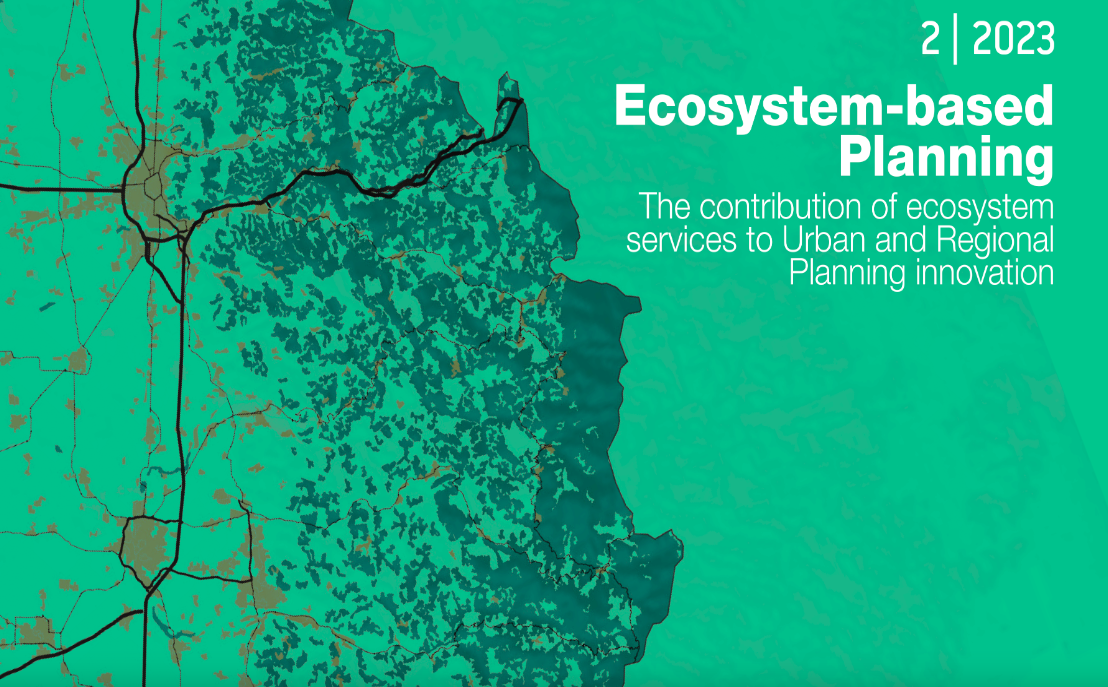Just Accepted List
ECOSYSTEM-BASED PLANNING - Contesti 2 | 2023 Upcoming Issue
Edited by Silvia Ronchi, Claudia De Luca, Chiara Cortinovis

The potential of different NBS policies to provide water flow regulation: a scenario-based assessment based on SWMM
Andrea Benedini, Politecnico di Milano. Dipartimento di Architettura e Studi Urbani
Accepted: December 2023 | Published Online: December 2023 | DOI: 10.13128/contest-14834
ABSTRACT
Pluvial flooding is a growing concern in cities, exacerbated by climate change and rapid urbanisation. To address this issue, contemporary flood risk management focuses on urban resilience and the role of Nature-Based Solutions (NBS) in providing Water Flow Regulation (WFR). Using the Storm Water Management Model, this study explores the effectiveness of different NBS policies in a densely built municipality, Cormano (Italy). The research identifies green roofs and permeable pavements as key NBS options and assesses their performance under various rainfall conditions. Six policy scenarios are examined, ranging from 'direct' public policies, where the government directly implements NBS, to ‘enabling’ policies incentivising private stakeholders to adopt NBS. Results indicate that the ‘enabling’ policy yields the most significant WFR improvements in the case study. The study underscores the need for multifaceted, integrated, performance based NBS strategies. It emphasises the importance of ‘enabling’ policy instruments, i.e. incentives for private retrofitting, in promoting NBS adoption.
Keywords: Stormwater management; Nature-Based Solution; Flood Risk; Urban policies; Ecosystem services
Sotto l’ombrello delle Nature Based Solutions. Il caso del Progetto Upper del Comune di Latina
Alberto Budoni, Sapienza Università di Roma. Ce.R.S.I.Te.S. - Centro di Ricerca e Servizi per l’Innovazione Tecnologica Sostenibile
Accepted: December 2023 | Published Online: December 2023 | DOI: 10.13128/contest-14825
ABSTRACT
Nature Based Solutions (NBS), as demonstrated by the extensive scientific literature, do not constitute an innovative concept, but represent an ‘umbrella’ context that allows many disciplines to confront each other in a transdisciplinary manner and potentially produce innovative solutions that can involve those parts of civil society that are still unaware of environmental issues and their economic and social implications. The opportunities offered by NBS are even more significant in territorial contexts that are problematic for environmental and socio-cultural aspects, such as the Municipality of Latina where the Upper European project was carried out. The project attempted to develop environmental, economic, urban planning and social analyses and actions in an integrated manner and, despite the difficulties encountered and the many objectives still to be achieved, its results may be considered overall positive and useful for comparison with other contexts.
Keywords: nature-based solutions; transdisciplinarity; urban innovative actions; green and blue infrastructures; productive parks

